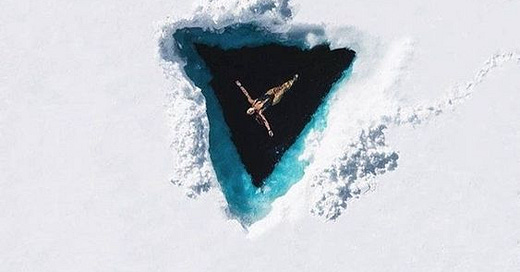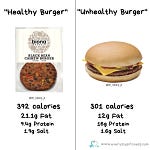Welcome to The Neuro Athletics newsletter — your weekly source of human performance and health news. If you are new, you can join here. Please comment below with feedback on today’s newsletter.
Neuro Athletes,
Stressed? Take an ice bath.
Fatigued? Take an ice bath.
Lack focus? Take an ice bath.
Want to improve learning & memory? Take an ice bath.
I have spent the last decade in the medical field surrounded by wonderful physicians and scientists that have taught me how to read and interpret scientific literature. Every protocol I use in my Neuro Athletic training method with NBA athletes and hedge fund managers is stripped and adapted right from the lab.
In saying that, I know how much misinformation is out there surrounding popular methods such as ‘intermittent fasting’, ‘sleep quality’, ‘nootropics’ and more.
So today I would like to focus on some of the scientific benefits and mechanisms at play regarding cold exposure (both through cold water immersion and whole body cryotherapy). How can cold exposure have a positive effect on the brain, the immune system and recovery?
I will cover three benefits of cold immersion and one myth (located in the podcast episode).
Cold Exposure
Cold exposure is the process of exposing yourself in a cold temperature, whether that be outside in cold air or immersing yourself in a cold plunge.
Cold thermogenesis literally means the creation of heat when the body is exposed to conditions significantly below the its optimum temperature—less than 37°C or 98.6°F.
Norepinephrine
Do you ever wake up and feel unfocused? Or in a bad mood from a terrible nights sleep? Well there may be a way to rectify that!
One of the most exciting features of cold water immersion is the rapid release of norepinephrine- a hormone and neurotransmitter in the central nervous system that increases alertness, arousal and speeds up reaction time.
The hypothermic stress of immersion in cold water stimulates the release of norepinephrine from the sympathetic nervous system. What makes norepinephrine so interesting is that it's not only a hormone but also a neurotransmitter and is involved in vigilance, focus, attention and mood.
As a neurotransmitter it increases:
Focus
Vigilance
Mood
As a hormone it:
Constricts blood vessels
Low levels of this hormone have been shown to play a role in ADHD, depression, and low blood pressure. In fact, if you deplete someone of all of their norepinephrine you will induce depression.
Interestingly, people with depression may be prescribed a class of drugs called serotonin-norepinephrine reuptake inhibitors (SNRIs). These drugs raise levels of norepinephrine and serotonin, another neurotransmitter, in the brain.
Commonly prescribed SNRIs include:
How much norepinephrine is released in response to cold immersion 🤔
This study showed that CWI at 68°F (20°C) for 1 hour does not appear to activate norepinephrine release whereas 1 hour at57°F (14°C) increased it by 530% and also increased dopamine by 250% 🤯
Reduces inflammation
Norepinephrine has a tonic anti-inflammatory action in the central nervous system (CNS) via its ability to suppress microglial and astrocytic activation, and inhibit production of inflammatory mediators.
One reason why CWI has become so popularised in the last three years is because we are living in a world that is scared of the harmful effects of inflammation.
But guess what?
Inflammation is not bad, it is only bad in excess. In saying this, I know many of my readers on here experience alot of both neural and bodily inflammation due to the amount of stress placed upon them at work. You want anything, any protocol, any drug that will help mitigate the harmful effects of excess inflammation.
My answer? Take an ice bath.
Here’s why:
Earlier, I mentioned that taking cold water immersion (CWI) increases the amount of norepinephrine that’s released into the brain and bloodstream. Well, it’s because of this that we notice a decrease in inflammation.
This is how it works.
Norepinephrine inhibits the inflammatory pathway by decreasing tumor necrosis factor alpha (TNFα), a very potent molecule that increases inflammation. An excess of the inflammatory cytokine TNFα has been implicated in almost every human disease ranging from type 2 diabetes to inflammatory bowel disease to cancer.
Moreover, this study shows how norepinephrine blunts the other inflammatory cytokines that have been show to play a role in rheumatoid arthritis.
Increases Mitochondrial Biogenesis
Mitochondrial biogenesis is literally a process by which mitochondria grow in their number and size. Mitochondria are the powerhouse of our cells. They help turn the energy we take from food into energy that the cell can use. But, there is more to mitochondria than energy production.
Although the best-known role of mitochondria is energy production, they carry out other important tasks such as apoptosis, the storing of calcium and heat production.
Recently, mitochondrial dysfunction has been recognized as an important contributor to an array of human diseases such as diabetes, cancer and neurodegenerative diseases.
So more mitochondria means more energy and better control of cell metabolism. Mitochondria are what gives us the ability to use oxygen in order to produce cellular energy, and if we have more of them, it can be said we may be more adapted to aerobic activity. More mitochondria per muscle cell directly translates to aerobic capacity.
Cold increases mitochondrial biogenesis through a really straightforward mechanism. Mitochondria are able to create heat as a byproduct of energy production.
Here's how it works...
Cold exposure activates a gene called PGC1α, which makes more mitochondria in the muscle. This is referred to as mitochondrial biogenesis and PGC1α is the master regulator of this process.
What is the protocol for this?
A study showed that a single 15 minute exposure to cold water (50°F or 10°C) increases PGC1α in muscle tissue.
But also another study showed that men who were immersed in cold water at 50°F (10°C) for 15 minutes 3 times a week for four weeks were able to increase mitochondrial biogenesis occurring in their muscle tissue.
While it is evident that both exercise and cold exposure independently induce PGC-1α and mitochondrial biogenesis, the interaction between exercise and post-exercise cold water immersion on mitochondrial adaptations is unclear and has been the subject of much debate.
If you have information you would like to share please contact me at louisa.nicola@gmail.com
What to Read
Human physiological responses to immersion into water of different temperatures (LINK)
“Cold water immersion (14°C) lowered rectal temperature and increased metabolic rate (by 350%), heart rate and systolic and diastolic blood pressure (by 5%, 7%, and 8%, respectively)”
Post-exercise cold water immersion attenuates acute anabolic signalling and long-term adaptations in muscle to strength training (LINK)
“Individuals who use strength training to improve athletic performance, recover from injury or maintain their health should therefore reconsider whether to use cold water immersion as an adjuvant to their training”
Tweets of the Week



Improve Your Fitness Through Sleep
Eight Sleep is the premier sleep fitness company that powers human performance through optimal sleep.
They use an advanced temperature-controlled system that adjusts throughout the night. It analyzes your personalized sleep stages, biometrics, and bedroom temperature, reacting intelligently to create the optimal sleeping environment.
The result?
Since getting my Eight Sleep Pod Pro Cover a few months ago, not only do I fall asleep faster, I actually get high-quality sleep, so I wake up feeling well-rested and energized.
Simply put, it’s been a game-changer.
If you want to join me and thousands of pro athletes, CEOs, and other high performers that are dedicated to improving their sleep fitness, you should get an Eight Sleep Pod Pro Cover too.
Trust me; you won’t regret it :)





















Share this post